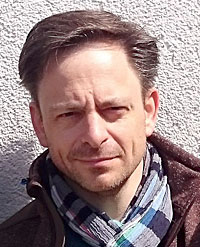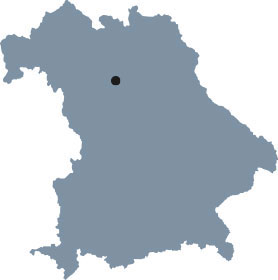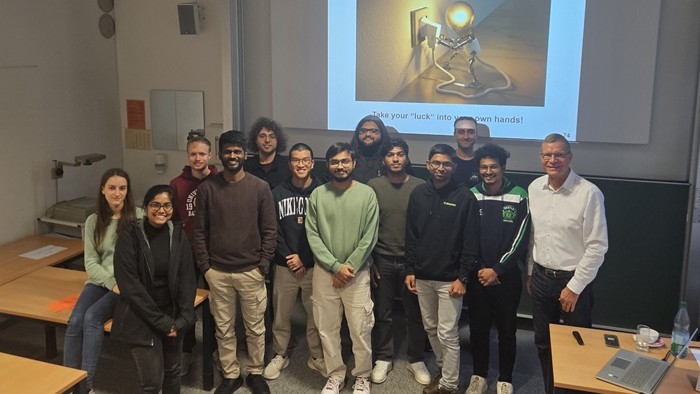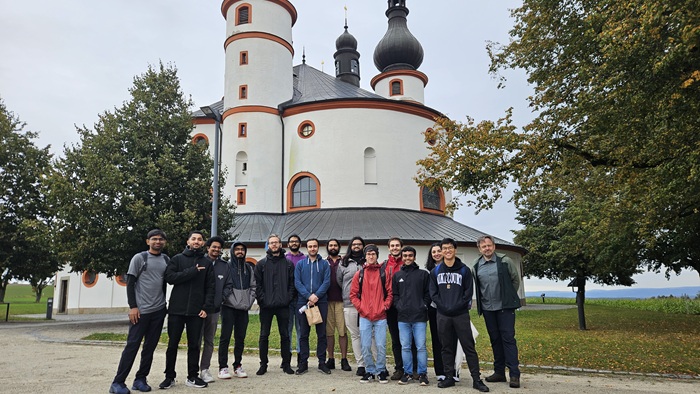Scientific Computing
Numerical simulations of phenomena in technology and natural sciences have been shown to be an essential tool for accelerating development cycles in industry and businesses. Demands on the capabilities of numerical simulation continue to grow with the need for models that are more precise and the incorporation of new problem areas. The objective of “Scientific Computing” is thus to bring highly complex problems to a less complex numerical approximation via an understanding of their mathematical core.
| Degree | Master of Science |
| Duration of study | Four semesters |
| Place of study | Bayreuth |
| Admission Requirements | Distinguished bachelor’s degree in mathematics with a component of numerical mathematics (or a degree with equivalent content) |
| Language of instruction | English |
| Application deadline | November 15th, May 15th |
| Begin of studies | Winter semester, summer semester |
| Head | Prof. Dr. Mario Bebendorf |
| Coordinator | Dr. Maximilian Bauer Contact the coordinator |
| Further information | Website Scientific ComputingGeneral program information of the University of Bayreuth |
The Elite Graduate Program Scientific Computing is a specialized program for highly talented students. It addresses the development and mathematical analysis of highly efficient numerical methods and takes into account the entire solution chain, including modelling; mathematical, numerical, and statistical analysis; optimization; the implementation of algorithms on high-performance computers; and the visualization of results. The problems for simulations will be from fields such as biochemistry, physics, computer science, and engineering. The excellent scientific education is accompanied by courses dedicated to the development of key skills.
A pivotal element of this Elite Graduate Program are the modelling weeks. These compact seminars are held off-campus and provide opportunities to applythe expertise gained during the lectures.
Representatives from high-tech companies present issues that are currently being addressed by the industry.
During the Elite Graduate Program "Scientific Computing", students will have the chance to work on current research projects. They will even have the opportunity to start a doctorate during the master's program with our fast track option.


The new master’s program prepares highly talented students for the future challenges of numerical simulation in industry and research.
Prof. Dr. Mario Bebendorf




